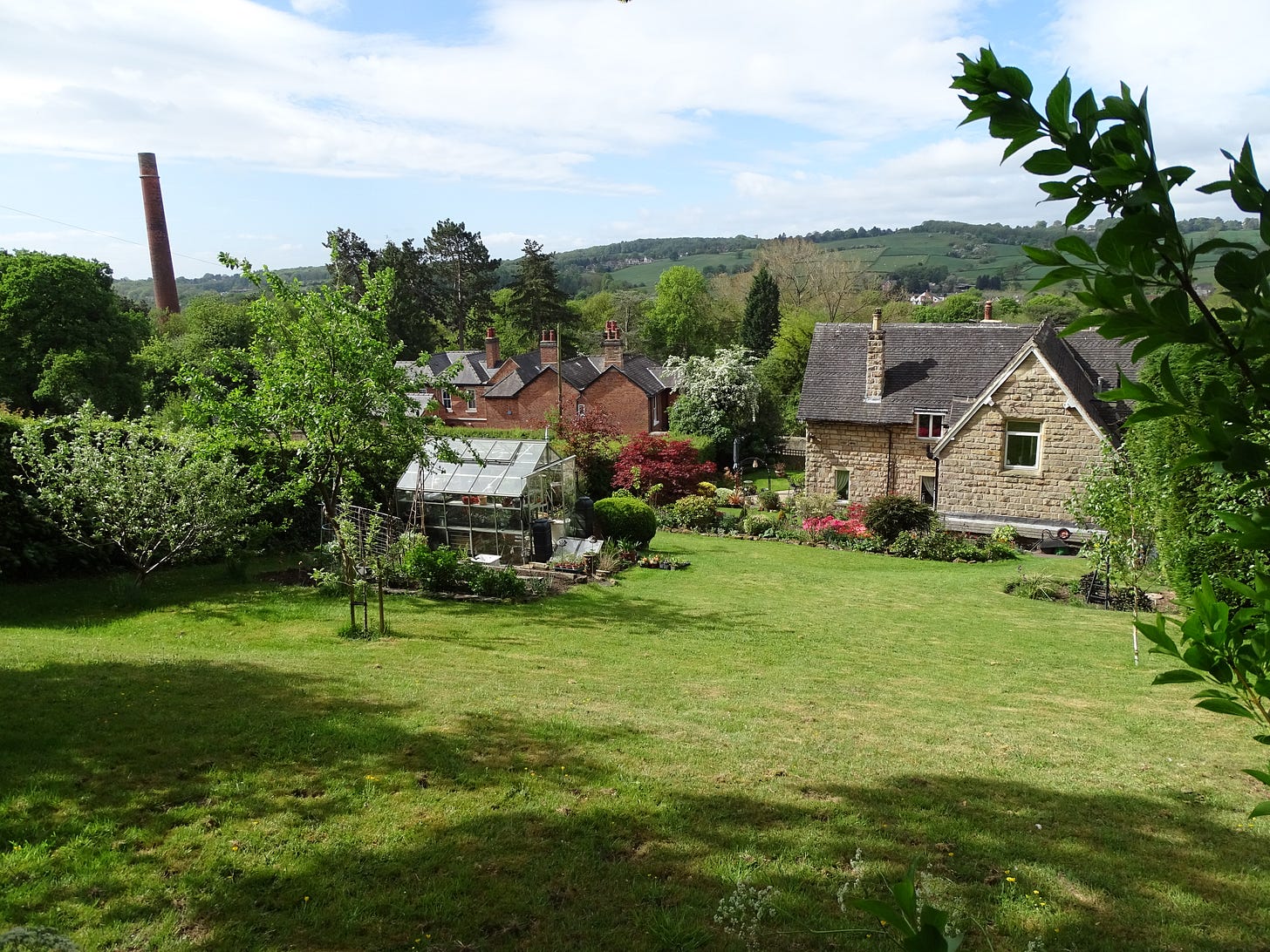Reflections 4th May
There are no antidotes to change
For thirty-five years, I have lived in a house that predates the Industrial Revolution. At the top of the garden is ancient woodland, and in the valley below me, St Alkmund’s Church dates back to around 900AD, and is on a pilgrimage way trodden by those who predate it.
The river that flows through the valley, the Derwent, powered the thirteenth-century corn mill that later became one of Europe’s first water-powered paper mills (where the chimney is) and, in later times, formed one of the significant spines of the Industrial Revolution, connecting the first modern factory in Derby to the mills in Cromford.
Keep reading with a 7-day free trial
Subscribe to Outside the Walls to keep reading this post and get 7 days of free access to the full post archives.


